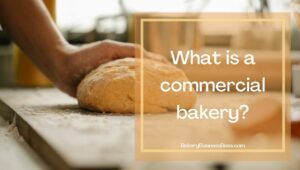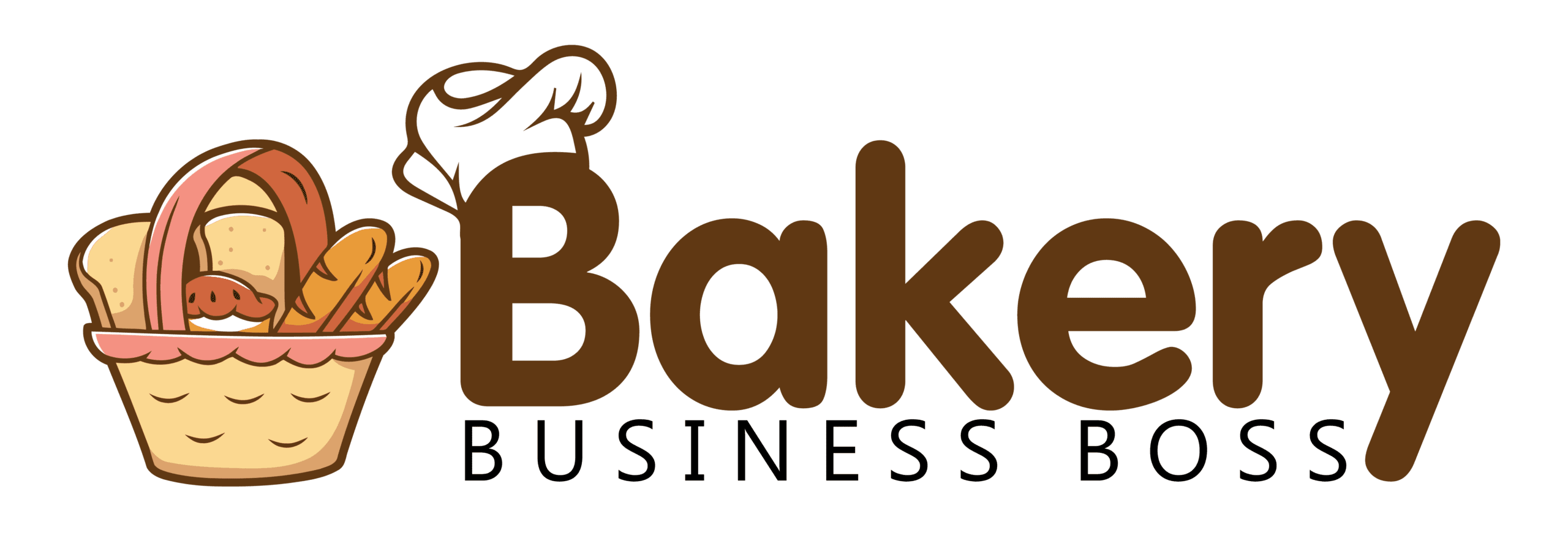When it comes to selling and buying baked goods, there are two main options: commercial and retail bakeries. Each has its own unique set of pros and cons, which can be useful for business owners when deciding what type of bakery to launch and for customers when making a purchasing decision.
A commercial bakery is a business that makes and sells baked goods to other businesses or retailers. It is usually a big business that employs a lot of bakers, cake decorators, and other workers. A retail bakery on the other hand bakes and sells goods directly to customers and are mostly found in shopping centers, grocery stores, and other places where people can buy ready-made bread and other baked goods.
In this blog post, we’ll take a look at the differences between commercial bakeries and retail bakeries, exploring the pros and cons of each to help customers make the best decision for their needs.
What is a commercial bakery?

A commercial bakery is a business that produces and sells baked goods to retailers or other businesses. Commercial bakeries are typically large-scale operations that employ many bakers, cake decorators, and other staff members and are generally found in larger cities and towns.
They often focus on specific products such as cookies, cakes, and pies, and may also produce specialty items such as bagels or croissants. The ingredients used by commercial bakeries are of a higher quality than those used in retail bakeries and they often require specialized baking equipment and processes. Also, are highly regulated and must adhere to strict food safety standards to ensure the products they sell are safe for consumption.
Bakery Industry Statistics for 2023
What is a retail bakery?
A retail bakery is a type of bakery business that specializes in selling baked goods directly to consumers. These types of bakeries are typically found in shopping centers, grocery stores, and other locations where people can easily purchase ready-made baked items.
Retail bakeries generally offer a wide selection of baked goods, from classic treats like cookies and cupcakes to specialty items like artisan pieces of bread and croissants. They often also feature a variety of coffee, tea, and espresso drinks for customers to enjoy alongside their freshly-baked pastries.
They may also offer catering services for special events or sell gift baskets filled with their delicious treats.
The pros and cons of commercial bakeries
As with every business venture, there are risks to consider. Here are some crucial considerations when weighing the pros and cons of a commercial bakery.
- Commercial bakeries can produce larger quantities of baked goods in a shorter amount of time, making them ideal for restaurants, catering businesses, and other large-scale enterprises.
- As the ingredients are used in larger quantities, commercial bakeries often benefit from economies of scale when it comes to sourcing ingredients, which makes them more cost-effective than retail bakeries.
- The production process is highly automated, which reduces labor costs and improves efficiency.
- Because of the large volume of production and automation involved, quality control at commercial bakeries can be more challenging.
- It can be more difficult to customize orders in a commercial bakery, as the production process is usually highly standardized.
- Commercial bakeries may also lack the personal touch that customers get from a retail bakery.
The pros and cons of retail bakeries

Retail bakeries produce freshly-baked goods for sale to the public. One of its advantages is that they are usually more convenient than commercial bakeries since customers can easily access them in the local area. They also offer an interesting array of baked goods and tend to be more creative than commercial bakeries, as they are often able to experiment with different flavors and ingredients that may not be available in larger bakeries. Moreover, retail bakeries have the flexibility to adjust prices based on demand or seasonality.
A disadvantage of retail bakeries is that they often lack the resources that larger commercial bakeries have. This can make it difficult for them to compete on price or production capacity. While retail bakeries may offer a wider variety of goods than commercial bakeries, they may not be able to keep up with the demands of more sophisticated customers. Finally, retail bakeries may not have more access to bulk-purchasing discounts than larger bakeries, which can lead to higher consumer prices.
There is Money in Baking: Top Reasons
Various bakery service styles
After deciding whether you wish to operate a commercial or retail bakery, you can select your preferred service model. Your service style defines how you move products from your kitchen to your customers, and it will be a crucial element of your bakery business plan.
Bakery Cafe
A bakery cafe or sit-down bakery has a seating area where customers can eat. Opening a bakery cafe with seating requires a location with both back-of-house and front-of-house space. Most bakery cafes sell beverages and other food items to go with their baked goods. For instance, it can specialize in cookies, cupcakes, and muffins and also serve coffee, tea, and sandwiches.
Home-based bakery
Home baking is perfect for entrepreneurs with less capital since equipment, a working space, and permits are all you need to start a home bakery. Some concerns of starting a home bakery are: figuring out how to sell baked goods, the option of online selling, how to keep products fresh for across-the-state sales, and the need for a refrigerated delivery truck or van for local sales, among others. Answering these questions is important and will help in the design and plan of the business’s daily operations.
Bakeries Bake Fresh Goods Every Day: Here’s Why
Counter-Service Bakery
Counter-service bakeries are smaller in size and don’t have an area for sit-down dining. . It can serve walk-in and call-ahead customers. Without worrying about front-of-house space, this business model can focus on large or bulk orders. Also, coffee and other food items may be offered for takeout to anyone dropping by the counter-service bakery.
Food Truck Bakery
Bakery food trucks are popular, inexpensive, and allow movement around, unlike sit-down restaurants.
However, if you choose this business model, you’ll likely need to prepare your product elsewhere. A bakery or cupcake food truck can have a fully equipped kitchen, but it’s expensive. Fortunately, many cities have commissary kitchens that you can rent by the hour. If you bake your goods elsewhere, you only need enough truck space to store and serve them and reduce costs.
Conclusion

A retail bakery produces and sells baked goods to the general public while commercial bakeries have bigger operations and sell baked goods to other businesses and retailers.
As a business owner, it’s important to think about factors like financial resources, geographic location, and ideal customers before deciding on a specific kind of bakery open as this is a big life decision and investment.
Six Best Steps To Start A Bakery
Frequently Asked Questions
Conveyor ovens are a convenient type of commercial oven that is great for any restaurant that cooks or bakes a lot of food at a uniform temperature and time all the time.
Commercial bakers, who are sometimes called “production bakers,” work in factories that make bread, pastries, and other baked goods. In these facilities, they use high-volume mixing machines, ovens, and other equipment, some of which may be automated, to mass-produce standardized baked goods.
To learn more on how to start your own bakery business check out my startup documents here
This blog post is provided for informational purposes only. The information contained is not intended to constitute legal advice or to substitute for obtaining legal advice from a qualified attorney.

About the author. Entrepreneur and Bakery Business Fan.
Hi! I am Shawn and I am a happy individual who happens to be an entrepreneur. I have owned several types of businesses in my life from a coffee shop to an import and export business to an online review business plus a few more and now I create online bakery business resources for those interested in starting new ventures. It’s demanding work but I love it. I do it for those passionate about their business and their goals. That’s why when I meet a bakery business owner, I see myself. I know how hard the struggle is to retain customers, find good employees and keep the business growing all while trying to stay competitive.
That’s why I created Bakery Business Boss: I want to help bakery business owners like you build a thriving business that brings you endless joy and supports your ideal lifestyle.

